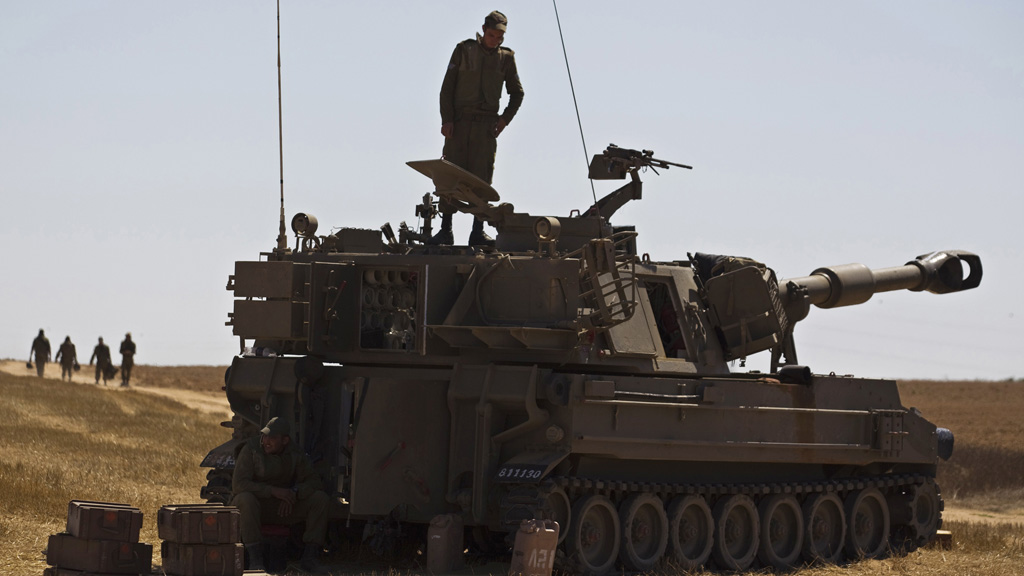What’s America’s Israel strategy? Five questions answered
Barack Obama urges both Israel and Palestine to show restraint. But how is America trying to achieve peace in the increasingly volatile Middle East? We answer some key questions.

What’s Obama saying?
The president’s written some op-eds calling for calm and restraint. In the Israeli newspaper Ha’aretz, stressing that a two-state solution was the only answer he wrote: “All parties must protect the innocent and act with reasonableness and restraint, not vengeance and retribution.” He echoed that line in another article for Germany’s Die Zeit newspaper due to be published on Thursday. “Everyone involved” in the latest cycle of violence, he said, should avoid any kind of revenge.
Earlier this week the White House strongly condemned the rocket attacks on Israel from Gaza, including the “deliberate targeting of civilians by terrorist organisations”. Spokesman Josh Earnest insisted that the US “supports Israel’s right to defend itself against these vicious attacks.”
But is America doing anything?
According to the White House, Secretary of State John Kerry is willing to “engage robustly” and restore the ceasefire. At the moment, though, America is standing well back – with one eye on it’s own mid-term elections in November. The former chief of Israel’s secret service, Ami Ayalon, told the Times of Israel the US isn’t actively pushing for a truce. “Today, the way it looks from here, America couldn’t care less”, he said.
Republican senator John McCain thinks John Kerry should go to the region “and try to maybe do a little shuttle diplomacy”. The US, he insisted, could play a constructive role.
The administration is working for a security plan along the Jordan river to counter threats from terrorist organisations across the region. Retired US general John Allen has come up with a range of options, including replacing the Israeli Defence force with a multi-national force, and creating what one official called “one of the most secure borders in the world”
What do Americans think?
According to a YouGov poll, most Americans fear the Israeli-Palestinian conflict is only going to get worse. Half of all those surveyed said they thought violence would increase in the next few years – with just 3 per cent convinced it would decrease. A
nd the majority were more sympathetic to Israelis, although this was far more pronouced amount Republicans than Democrats. Most, though, still thought Israel was more interested in making peace than the Palestinians.
Fair and balanced?
A senior adminstration official, Philip Gordon, has been giving some tough advice to Israel, at a peace conference in Tel Aviv organized by Ha’aretz.
“The United States will always have Israel’s back”, he said. But he strongly condemned the occupation of the West Bank – calling it “not only wrong but a recipe for resentment and recurring instability”.
Simply not viable in the long term, he declared. “It will embolden extremists on both sides, tear at Israel’s democratic fabric and feed mutual dehumanisation.”
Will America talk to Hamas?
Unlikely. According to Shlomo Brom, who was head of strategic planning for the Israeli army, the US has no leverage over Hamas, robbing them of any real power in the conflict. The United States is keen to shore up the leader of the Palestinian authority, Mahmoud Abbas – who it sees as a force for moderation in the region, and a leader who has publicly recognised Israel’s right to exist.
Engaging with Hamas might undermine his authority, say pundits.
But according to the former Hamas spokesman Ihab al-Ghussein – Abbas is deliberately trying to fool the West. On his Facebook page, he claimed that behind closed doors, “these words are meant to trick the Americans”. Bluff, double bluff, and the inevitable smoke and mirrors of Middle East diplomacy.